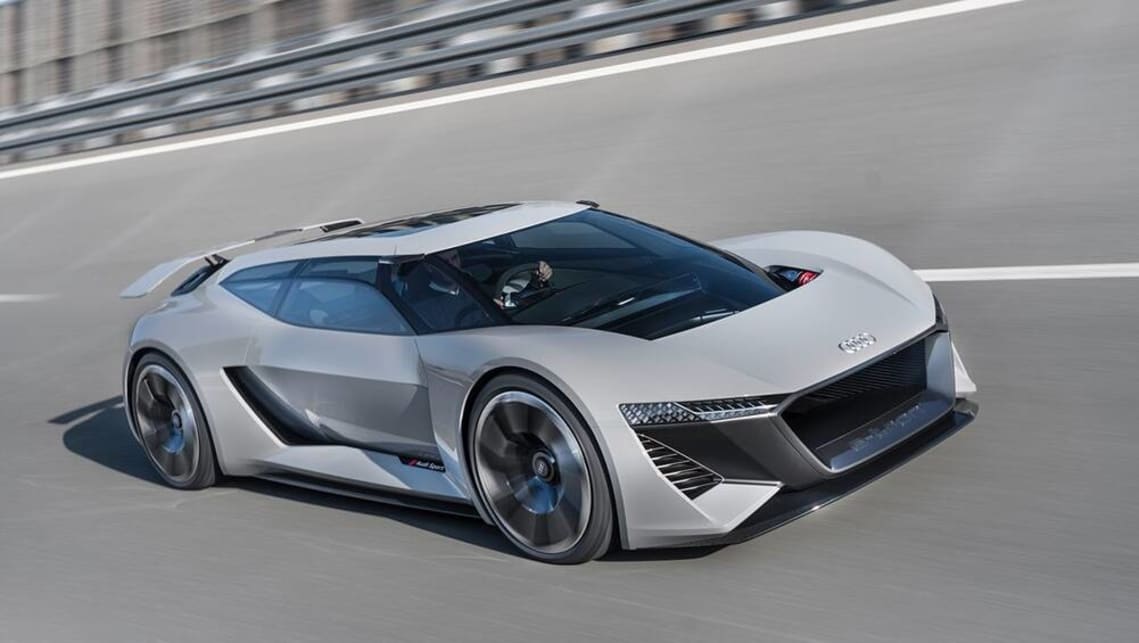Your cart is currently empty!

Audi RS models to go hybrid! Plug-in confirmed for German performance heroes
Audi has confirmed its future full-fat RS performance heroes will score plug-in hybrid engines, as well as expanding its current petrol-electric line-up to the Q3 small crossover and Q8 large SUV later this year.
The brand believes that a petrol-electric hybrid powertrain would “make a good argument” as a performance solution due to instantaneous torque delivery, but also provide the efficiency of a plug-in set-up.
Audi did not reveal which RS model will be the first to receive a plug-in powertrain, but its current RS portfolio includes the RS3 Sportback and sedan, RS4 Avant, RS5 Sportback and coupe, RS6 Avant, RS7, RS Q3 SUV, and flagship R8 supercar.
We’d wager the next-gen R8 will be the first with a hybrid engine though, as the model is next due for a ground-up update and was previewed two years ago by the all-electric PB18.
In Audi’s mainstream line-up though, there will be eight nameplates with a plug-in hybrid electric vehicle (PHEV) option – including the A3, A6, A7, A8, Q5, Q7, and just-confirmed Q3 and Q8 – though Australia will remain primarily focused on full-battery electric options such as the e-tron for the short term.
Audi Australia PR boss Shaun Cleary confirmed to media that PHEV models will eventually be rolled out however, but won’t be made available until well into the decade.
“Audi is focused on bringing its first full EVs to market with the e-tron and e-tron Sportback,” he said. “Looking at the road map over five to ten years, plug-in hybrid models will be making up a proportion of our line-up.”
Audi Australia briefly introduced PHEV versions of its A3 Sportback and Q7 large SUV in 2015 and 2018 respectively, but both were limited in availability and served more as a toe-in-the-water exercise than volume sellers.

This strategy is also at odds with Audi’s VW parent, who is pursuing a full-electrification-only strategy for the Australian market, skipping over its plug-in hybrid models altogether.
Mr Cleary noted that while it was too early to talk about pricing for the new generation of Audi PHEV variants in Australia, he said the brand would generally be sticking to the strategy employed with its previous plug-in models of offering highly-specified variants at a modest price premium.

This strategy would seem competitive with rivals locally, like the Mercedes-Benz GLC 300e PHEV that is offered in a single high-level trim, but with only a modest premium over its GLC 300 purely petrol equivalent.
Audi also said plug-in hybrid variants are frequently misunderstood by consumers as a “transitional product” between combustion and EV, but are in fact part of the brand’s long-term strategy to offer a more flexible line-up, which is still capable of net zero CO2 emissions despite offering long ranges and high performance with low fuel usage.
It also announced that its strategy for the future of its plug-in hybrid technology would include increasing energy density of its batteries to raise electric-only range to “up to 80km” while not increasing the form-factor.
The brand said the current weight and size of batteries and engines were key to plug-in hybrids offering a balance of efficiency and range and the promise of CO2 neutrality.
While plug-in hybrids are playing an important role in Audi’s (and more widely Volkswagen Group’s) emissions reduction strategy in its European home market, the same cannot be said for Australia where there are little to no government incentives for the ownership of electrified variants, nor are there the same strict emissions targets.
by
Tags:
